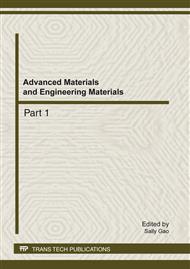p.3
p.7
p.11
p.15
p.20
p.26
p.30
p.34
p.38
Research on Algorithms Performance about JSP Scheduling
Abstract:
Three typical intelligent evolutionary algorithms are applied on Job Shop scheduling problem which are Quantum algorithm, Genetic Algorithm and Population Based Incremental Learning algorithm. They three algorithms have some common features in computation, encoding strategy and probability application, but with the different problems and different scale sizes of the same problem they show different performance. In this paper we take JSP as example to test their performance difference and analyze their applicability. Two benchmark Job Shop problems are used to fulfill the comparison. The results denote that Quantum algorithm is good in a great quantity of solution individual, GA is excellent in stability and PBIL had good performance in accuracy. The research also makes a reliable instruction on the application or combination of the three algorithms.
Info:
Periodical:
Pages:
20-25
Citation:
Online since:
January 2012
Authors:
Keywords:
Price:
Сopyright:
© 2012 Trans Tech Publications Ltd. All Rights Reserved
Share:
Citation:


